
 lobal warming is a
hot topic (pun intended!), especially at the Phrenicea website.
The worldwide consequences of global warming contribute significantly to the Phrenicea consortium's fictional
founding in 2014 (as depicted in the 1999 short story "The Engagement of Phrenicea") and its rapid worldwide acceptance.
With Phrenicea, many of the global-warming contributors we take for granted no longer exist by midcentury. There
are no: cars, planes, phones, TVs, computers/electronic gadgets, pets, agricultural
or meat farms, centralized utilities, oil refineries, et al.
lobal warming is a
hot topic (pun intended!), especially at the Phrenicea website.
The worldwide consequences of global warming contribute significantly to the Phrenicea consortium's fictional
founding in 2014 (as depicted in the 1999 short story "The Engagement of Phrenicea") and its rapid worldwide acceptance.
With Phrenicea, many of the global-warming contributors we take for granted no longer exist by midcentury. There
are no: cars, planes, phones, TVs, computers/electronic gadgets, pets, agricultural
or meat farms, centralized utilities, oil refineries, et al.
What is global warming?
Simply stated, it's a general trend of increasing surface temperatures throughout the
world.
|
If you live in our modern society, you are contributing to global warming.
|
What is causing it?
Man's (anthropogenic) enhancement of the "greenhouse effect" resulting from industrial
activity.
What is the greenhouse effect?
The greenhouse effect is the trapping of the sun's heat within the Earth's atmosphere, preventing
its escape into outer space. The greenhouse effect is NOT necessarily a bad thing and
existed before we humans. Without it, the Earth's temperature would approach 0°F
versus today's 57°.
Naturally occurring greenhouse gases include water vapor, carbon dioxide, methane and
nitrous oxide. Together these act like the glass of a greenhouse; hence the name.
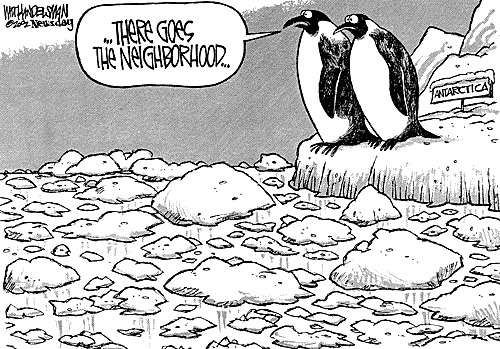 Handelsman © Walt Handelsman. Dist. by UCLICK LLC. Reprinted with permission. All rights reserved.
Handelsman © Walt Handelsman. Dist. by UCLICK LLC. Reprinted with permission. All rights reserved.
Too much of a good thing...
Modern human activity causes unnatural increases in the naturally occurring
greenhouse gases. The consumption of resources — especially coal, oil and gas — is the
primary culprit. More of the sun's heat that used to escape through the Earth's atmosphere now
remains trapped.
The
United States
alone generates almost 40% of the greenhouse gases. A real
concern is the gradual industrialization of the rest of the world. This will
exacerbate the effects already observed. It is estimated that carbon dioxide
levels alone will double in the next 65 years.
Not me! I drive infrequently and own a small, efficient car!
If you live in our modern society, you are contributing to global warming.
If you eat store-bought food, use hot water, watch TV, keep a pet, read the newspaper,
switch on a light, use a computer, maintain a grassy lawn, heat or cool your home,
wash or dry your clothes, or even walk on carpeting — you're a culprit.
I'm Skeptical!
The 16th-century philosopher Francis Bacon wrote that nature best reveals her secrets
when tormented. To date she's been exceedingly forgiving. But for how much longer?
In just the last 20 years, average temperatures climbed 7°F in Alaska, Siberia,
and parts of Canada. The Intergovernmental Panel on Climate Change predicts that global temperatures
could rise another 11° by 2100. They've risen only 9° since the last ice age!
Marine biologists are now gathering evidence that coral are dying in warmer waters,
and thus are predicting that the majestic coral reefs will be gone within 50 years.
So what?
The U.S. Environmental Protection Agency puts it succinctly:
|
|
Rising global temperatures are expected to melt polar ice. Warmer temperatures at
the poles will change traditional ocean currents, winds and rainfall patterns.
Changing regional climate could alter forests, crop yields, and fresh water supplies.
It could also threaten human health, and harm birds, fish, and many types of
ecosystems. Deserts may expand into existing rangelands. [There is] likely to
be an overall trend toward increased precipitation and evaporation, more intense
rainstorms, and drier soils.
|
|
The potential "domino effect" of massive climatic changes will be displacement of coastal
populations, alternating desert and flooding conditions, and infestation by
insects — crop-eating and disease-carrying.
There could be "water wars." (Visit
H2Ouch!) As U.S. News & World Report® magazine stated in a special edition:
|
|
Drought and an accompanying lack of water would be the
most obvious consequence of warmer temperatures. By 2015, 3 billion people will be
living in areas without enough water. The already water-starved Middle East could become
the center of conflicts, even war, over water access. Turkey has already diverted water
from the Tigris and Euphrates rivers with dams and irrigation systems, leaving downstream
countries like Iraq and Syria complaining about low river levels. By 2050, such downstream
nations could be left without enough water for drinking and irrigation.
|
|
And there will be indeterminable repercussions.
What about El Niño?
El Niño, the periodic warming of the ocean in the tropical Pacific leading to heavy
rains in parts of South America and Africa, is not caused by global warming.
It is a phenomenon that pre-dates man's ecological impact. However, they may
become more frequent, longer and intense. The effects of El Niño can be viewed as a
global warming scenario in miniature.
What is the solution?
A voluntary cutback in human activity that creates the byproducts that contribute
to the greenhouse effect. The well-intentioned Kyoto Protocol — an international treaty
drafted in 1997 and signed by over 150 developed nations — dictated greenhouse emissions
be reduced to 7% below 1990 levels by 2012. (The U.S. would have to reduce emissions by
35%!) However, the political distaste of promoting a more frugal lifestyle and higher
energy costs to encourage conservation prevented effective implementation of the guidelines.
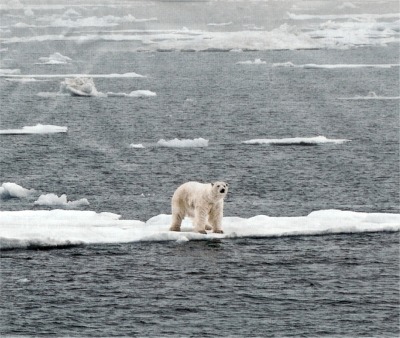
|
If every energy spendthrift of modern society performed a one-eighty lifestyle change by adopting a conservation
mindset, the synergy of "the power of one" and "strength in numbers" would likely reduce consumption
and demand for energy sufficiently to render the global warming argument moot.
Our children and grandchildren would be grateful.
— The Editors
|
As per the scenario presented on the Phrenicea website, we never do get our
collective act together. This creates the fertile environment — both psychological
and physical — for Phrenicea's spread into the global populace.
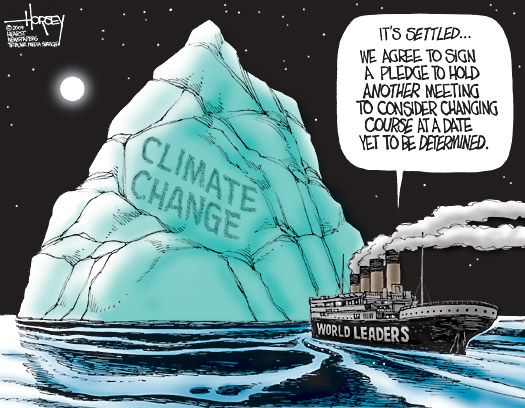 David Horsey Copyright © 2009 UCLICK LLC, All rights reserved.
David Horsey Copyright © 2009 UCLICK LLC, All rights reserved.

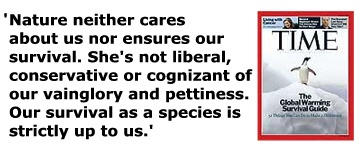


Prevent Phrenicea!
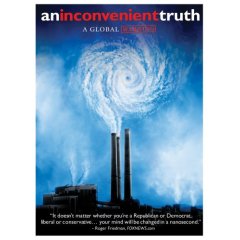
Stop Global Warming!

Chronicling the Future®

Use of this website
constitutes acceptance of the Phrenicea® Terms and Conditions.


The Smart Way to Save Fuel

This page belongs to
www.phrenicea.com
Entire site ©2000-2022 John Herman. All rights reserved.






